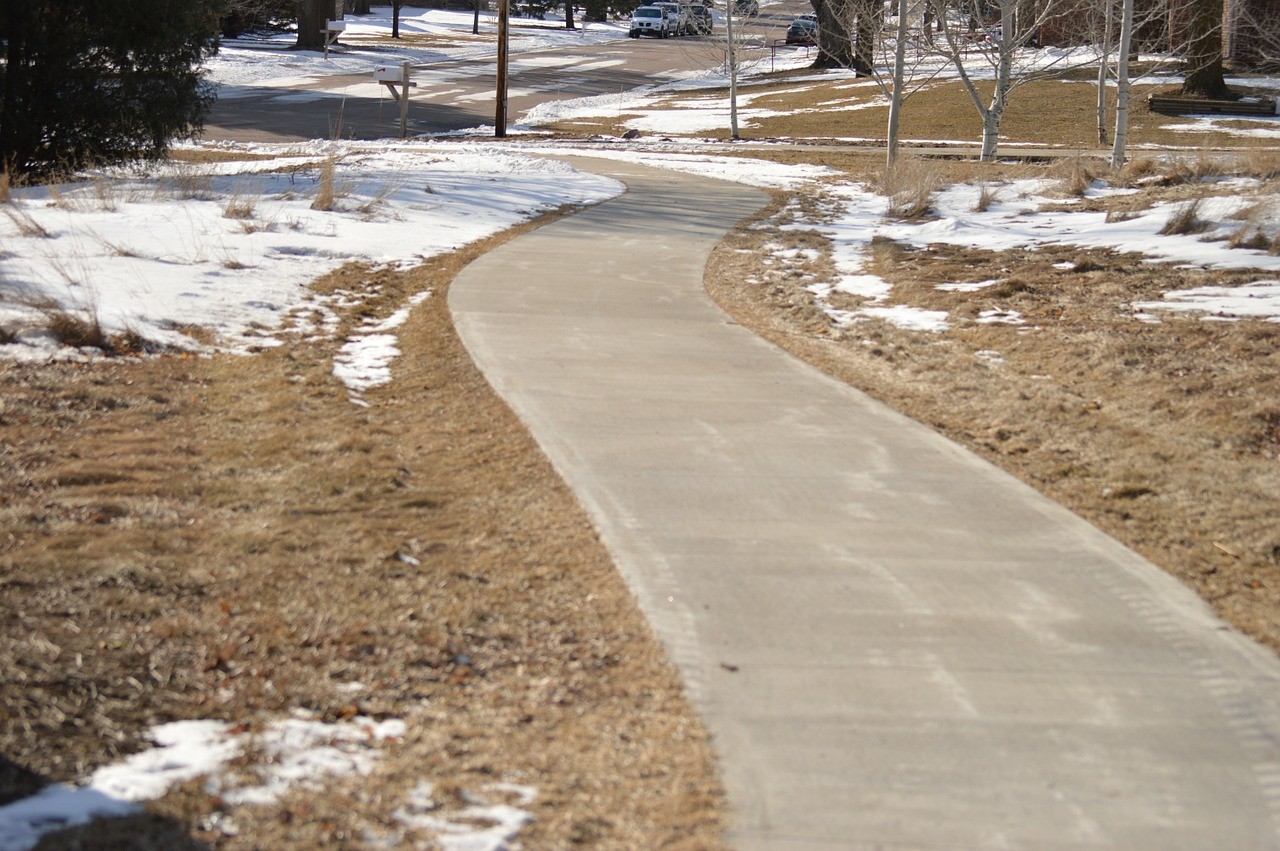Due to the common view of the paving industry being seasonal, "can you pour concrete in the winter" is a common question. Perhaps you're trying to skirt around the mad rush of the busy summer season and get your project done, or maybe your pavement has gone into disrepair and simply needs fixing or replacing as soon as possible. Either way, the answer regarding pouring concrete in cold weather depends on a few factors. It can be done, it just depends on specific weather conditions and and should be done according to some guidelines.
Quick Answer - Can you pour concrete in the winter? Depending on temperatures, cold weather can actually benefit concrete, increasing its strength and durability. However, there are limits to this and concrete that freezes too early will be impacted negatively. Get in touch with us to discuss your cold-weather concrete needs - we're happy to work with you to find a time when the temperatures will allow us to provide excellent results for whatever you project is.
What is Considered Cold Weather Concreting?
Officially, cold-weather concreting refers to the pouring and hardening of concrete when temperatures fall (or are expected to fall) below 40° F during what is referred to as the "protected period" - a recommended amount of time that new concrete should not be exposed to freezing temperatures in order to not be negatively impacted. This period of time varies, and depends on the temperature, going up as the temperature goes down.
A simple rule of thumb regarding the "protected period" is to utilize cold weather concrete methods if there are 3 consecutive days during which temperatures drop below 40° F and remain below 50° F more than half of each day during that period.
The Effect of Cold Weather on Concrete
So how does cold weather affect concrete in general? The biggest concern is the freezing temperatures mentioned above. If fresh concrete is allowed to freeze too early while it's still setting and hardening (during the "protected period"), it can lose quite a bit of strength and end up requiring replacement. But, as long as temperatures aren't freezing or below, cold weather can actually have a surprising impact on concrete...
Turns out, concrete can actually benefit greatly from cold weather as long as the proper precautions and techniques are utilized. In fact, according to the American Concrete Institute's Guide to Cold Weather Concrete (ACI 306R-16), "Concrete placed during cold weather, protected against freezing, and properly cured for a sufficient length of time, has the potential to develop higher ultimate strength and greater durability than concrete placed at higher temperatures. It is susceptible to less thermal cracking than similar concrete placed at higher temperatures."
So, if temperatures aren't dropping below 40° F even at night, it's possible to pave as we normally would - and the concrete might even benefit from the cooler temperatures. If temperatures are dropping below 40° F for periods of time but not far below freezing for extended periods of time, paving is still likely possible but it requires special precautions and use of certain cold weather concreting techniques.
Special Considerations When Pouring Concrete in Cold Weather
As opposed to pouring Asphalt in cold weather, which has more challenges, concrete actually does good in colder weather except in certain circumstances such as extreme cold. When concrete freezes too early (when it's fresh and uncured), it can potentially lose much of its strength. It's generally true that paving concrete in temperatures under 20° F is a cutoff point - you may as well wait for warmer weather. For temperatures under 40° and particularly when expecting temps below freezing, here is a non-exhaustive list of considerations for ensuring your concrete is able to not only develop proper strength, but ultimate strength.
- The No-Exceptions Rules: Don't pour concrete on ground that is frozen or that has snow or ice on it, and never let concrete freeze in the first 24 hours after it's been poured. Either of these situations can have a major adverse affect on the strength of the pavement and should be avoided, no exceptions.
- Consider your concrete preparation: you can heat the water or aggregate before mixing to make the final concrete a good temperature for pouring regardless of outdoor temperatures. You can also consider different types of cement that set fast, or increasing your cement ratio in the mix by a small amount.
- Consider physical aids for the cold weather: Things such as wind blockage, heated enclosures or other insulation to contain and utilize the cement's own heat production during curing can help maintain good temperatures in your pavement as it hardens and cures.
- Know your cement, and know the job: The amount of time that fresh concrete needs to stay above given temperatures differs depending on the type of concrete being used and the purpose of the concrete.
So, in conclusion, can you pour concrete in the winter? Yes, you can, as long as you keep a close eye on temperatures and follow certain guidelines to ensure your pavement is able to properly set, cure and develop the necessary strength for its purpose.
If you're in need of concrete work in the Winter or have questions relating to pouring concrete in cold weather, don't hesitate to reach out to the pros at High Quality Asphalt & Concrete. We remain open for business throughout the Winter season, and we're happy to work with you to find the right time to get your concrete job done properly.
